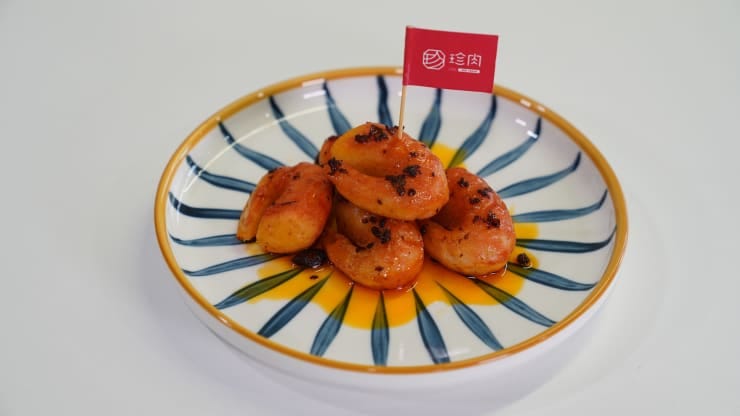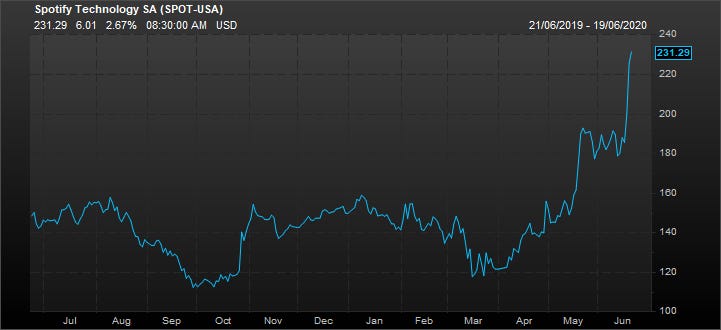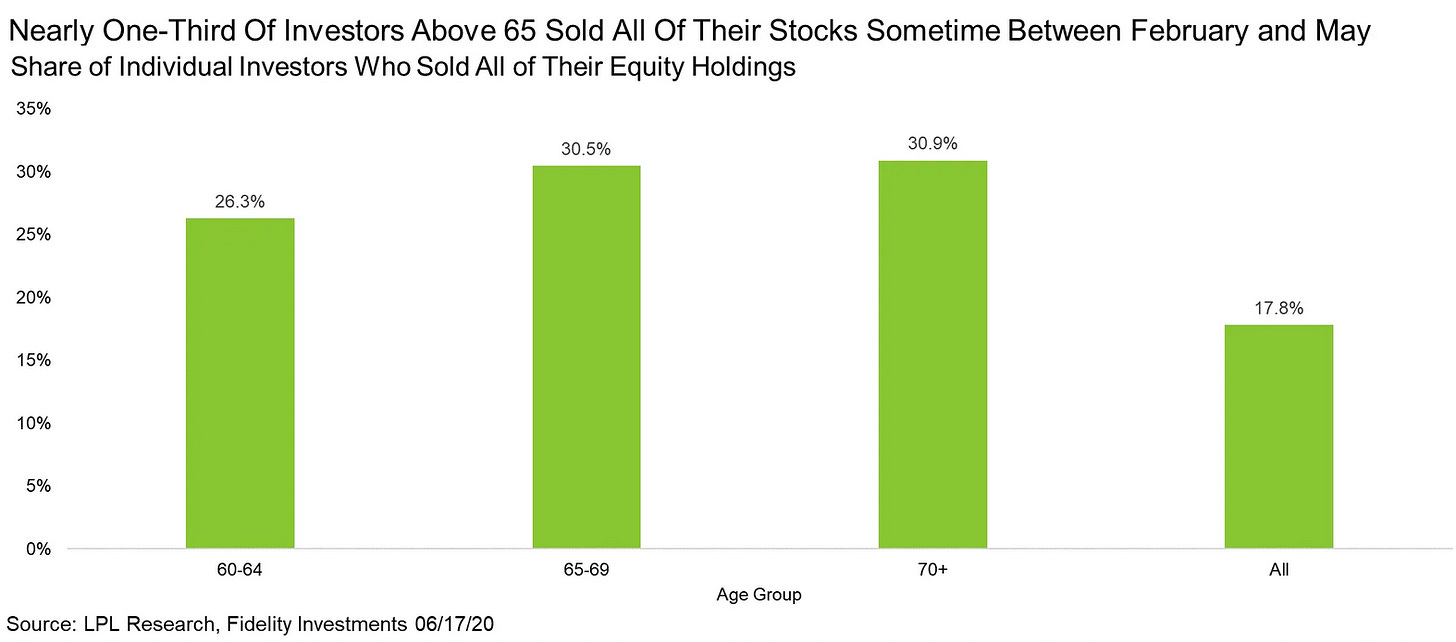Here’s your weekly wrap of technology, innovation, and finance news.
⚙️ Mobility
Passenger drones set to take to the skies in outback Australia.
It may sound futuristic, but an international startup says it will host a full-scale flying car race in remote South Australia before the end of the year.
Airspeeder has been developing the cars, which use drone technology to hover and manoeuvre above ground.
? Alternative Foods
Chinese startup Zhenmeat has released plant-based pork and crayfish to cater to Chinese tastes. The company is looking to raise $2 million by the end of the year.
“For the plant-based meat, U.S. companies like Beyond Meat and Impossible are very successful with the burger. They have their unique tech to make burger taste juicy and like beef. But since (the) start-up of Zhenmeat, we are always focusing on Chinese cuisine,” Zhenmeat founder and CEO, Vince Lu, told CNBC on Wednesday.
Possibly coming to a bottle near you: lab-grown breast milk. A startup called Biomilq has raised $3.5 million, and its backers include Breakthrough Energy Ventures, Bill Gates’s investment firm focused on climate change.
“Right now, by the estimations we have been able to make, at least 10% of the dairy market globally ends up in infant formula,” Eggers said. “That means per-infant-fed formula in the U.S., 5,700 metric tons of CO2 are produced, and 4,300 gallons of freshwater are consumed each year to feed a child. Parents want to do what’s best for their kids but shouldn’t have to decide between feeding their children and protecting the planet.”
? Health
Genetically modified goats can produce cancer drugs in their milk according to a team at AgResearch, a government-owned research institute in New Zealand (see the paper).
The offspring were all female and once they began lactating, they were able to produce about 10 grams of cetuximab in each litre of their milk. Since goats produce about 800 litres of milk every year, this means that each could manufacture multiple kilograms of cetuximab in a year.
“It’s a lot more economic to make cetuximab in animals because their mammary glands can produce large amounts of proteins,” says Laible. The genetic modification didn’t appear to affect the goats’ health, he adds.
? Viruses
Ginkgo Bioworks, a synthetic biology startup, is working on technology to produce half a million saliva-based COVID-19 tests per day. The tests use next-generation sequencing to detect the virus.
Tempus, a data-driven precision medicine startup, is also looking to join the fight against COVID-19 by working on testing along with drug-discovery efforts.
In April, Tempus began offering a polymerase chain reaction (PCR) test for Covid-19 from its Chicago and Atlanta laboratories. It currently expects to build its testing capacity to approximately 10,000 tests a day in the coming months. The test, offered through physicians, was rolled out parallel to the start of a research project to gather data on Covid-19 patients and look for patterns that can help physicians treating patients as well as drug-discovery efforts. Procedures may vary from patient to patient, but this is where Lefkofsky thinks the company’s AI platform can do the most good.
A more sombre piece from FT suggests that a COVID-19 vaccine may still be a while off.
But a shadow looms over the global race to develop a pandemic vaccine: a little-known phenomenon called antibody-dependent enhancement (ADE), also known as disease enhancement or immune enhancement.
▶️ Streaming
Spotify is expanding its original podcast content with a new deal with Warner Bros.’s DC that will produce narrative podcasts based on characters from the DC Universe. Spotify also signed an exclusive podcast deal with Kim Kardashian West that explores her work with wrongful convictions.
Last weekend, Jax Vullinghs from AirTree Ventures wrote an insightful piece about why she’s buying Spotify which highlighted its move into creating original content. Spotify stock rose 28% last week, reaching new all-time highs.
? Gaming
VentureBeat interviewed Andreessen Horowitz partner Andrew Chen about why the firm is investing in video games.
Epic Games, maker of Fortnite and Unreal Engine, is close to raising $750 million at a valuation of $17 billion. By comparison, Activision Blizzard, Electronic Arts, and Take-Two Interactive are valued at $59 billion, $38 billion, and $16 billion respectively. New investors in Epic Games include T. Rowe Price and Baillie Gifford.
EA held their EA Play 2020 event which showcased several new games and updates, including Star Wars: Squadrons (out on October 2, see the trailer).
CD Projekt delayed the launch of Cyberpunk 2077 to November 19 to spend more time on game balance and bug fixes. Early reviews of the much-anticipated game will come out after the Night City Wire event this Thursday (June 25).
? Batteries
The world’s first commercial liquid-air energy storage facility will begin construction this year in Greater Manchester, England. Highview Power, the company behind the facility, believes the facility will achieve a lower levelised cost of storage than lithium-ion battery systems, but this is in part due to the estimated 30-year life span of their system.
“At giga-scale, CRYOBatteries paired with renewables are equivalent in performance to — and could replace — thermal and nuclear baseload power in addition to supporting electricity transmission and distribution systems while providing additional security of supply. At approximately £110/MWh for a 10-hour, 200MW/2GWh system, the CRYOBattery offers a competitive levelised cost of storage for large-scale applications.”
?️ Ecommerce
Coupang, a SoftBank-backed startup, has topped Amazon to become South Korea’s biggest online retailer and is currently delivering 3.3 million items each day, up from an average of 2.2 million items per day at the end of 2019. The startup was recently valued at $9 billion and is reportedly planning an IPO as soon as 2021.
The company says 70% of Koreans live within 10 minutes of a Coupang logistics center, making last-mile delivery easier to achieve. It’s also helped by the fact that South Korea is one of the world’s most densely populated countries.
Last year Coupang further accelerated delivery speeds when it launched Dawn Delivery, which promises to drop off packages on shoppers’ doorsteps by 7 a.m. as long as they place the order by midnight the day before. That’s even faster than Amazon’s next-day delivery, which has a noon cutoff time.
? Finance
As the market makes new highs, investors are sitting on the biggest pile of cash ever.
Grappling with the most economic uncertainty in decades and a head-spinning stretch of volatility in the U.S. stock market, many investors have rushed into money-market funds. Assets in the funds recently swelled to about $4.6 trillion, the highest level on record, according to data from Refinitiv Lipper going back to 1992.
Data from Fidelity shows that 18% of investors sold all of their equity holdings between February and March. That figure rose to nearly a third for investors over 65 years old.
? App Economy
Apple has come under fire for its App Store policies. App Store curation provides a safer, convenient service for end-users along with distribution for developers, but some developers feel the 30% fee is too high.
Apple executives had told me and others earlier this week that it erred in its original approval of Hey.com, since the email service, which costs $99 per year, did not include the Apple-friendly in-app payment system as required by its rules.
The payment system, the only one available to developers when using Apple’s App Store, means Apple gets a huge cut when a customer buys digital goods like an app subscription (30 percent for the first year and 15 percent thereafter). Apple does not get a fee when customers sign up through the app’s company website, and it’s worth noting that 84 percent of apps are free, and developers pay nothing to Apple.
Some TikTok users are posting videos about how much they love China (some satirical, some not) in the hopes that this will help boost their views.
To increase transparency, TikTok posted a blog post which revealed how their algorithm that decides what you see next actually works.
⚡ Other Snippets
China has sent a quantum encrypted message between two observatories that are 1,200 kilometres apart, breaking a record for distance. The team beamed messages between the two observatories and Micius, the quantum satellite China launched in 2016.
SpaceX wants to build an offshore spaceport near Texas for a Starship Mars rocket.
Zoom has decided to offer end-to-end encryption to both free and paid users, so long as free users verify their phone numbers by receiving text message.
Russia plans to equip more than 43,000 schools with facial recognition cameras named “Orwell”. The cameras are designed to ensure children’s safety by monitoring their movements and identifying outsiders on the premises.
Computer scientists from ETH Zurich have developed what some are calling the first intuitive language for quantum computers, called Silq (see their paper).
“Silq is the first programming language that automatically identifies and erases values that are no longer needed,” explains Bichsel. The computer scientists achieved this by applying their knowledge of classical programming languages: their automatic uncomputation method uses only programming commands that are free of any special quantum operations – they are “qfree”, as Vechev and Bichsel say.
Spot, the dog-like robot from Boston Dynamics, is now available for sale on their website. The robot will set you back $74,500.









